ChatGPT-4: Transforming Medical Education and Addressing Clinical Exposure Challenges in the Post-pandemic Era
- PMID: 37609022
- PMCID: PMC10442004
- DOI: 10.1007/s43465-023-00967-7
ChatGPT-4: Transforming Medical Education and Addressing Clinical Exposure Challenges in the Post-pandemic Era
Abstract
Background: The COVID-19 pandemic has affected medical education, constraining clinical exposure and posing unprecedented challenges for students and junior doctors. This research explores the potential of artificial intelligence (AI), specifically the ChatGPT-4 language model, to transform medical education and address the deficiencies in clinical exposure during the post-pandemic era.
Research questions/purpose: What is the potential of AI large language models in delivering safe and coherent medical advice to junior doctors for clinical orthopaedic scenarios?
Patients and methods: A series of diverse orthopaedic questions was presented to ChatGPT-4, from general medicine to highly specialised fields. The questions were based on a variety of common orthopaedic presentations including neck of femur fracture, compartment syndrome, pulmonary embolism, and a motor vehicle accident. A validated questionnaire (Likert Scale) was implemented to evaluate the answers produced by ChatGPT-4.
Results: Our results indicate that ChatGPT-4 exhibits exceptional proficiency in delivering accurate and coherent medical advice. Its intuitive interface, accessibility, and sophisticated algorithm render it an ideal supplementary tool for medical students and junior doctors. Despite certain limitations, such as its inability to fully address highly specialised areas, this study highlights the potential of AI and ChatGPT-4 to revolutionise medical education and fill the clinical exposure void generated by the pandemic. Future research should concentrate on the practical application of ChatGPT-4 in real-world medical environments and its integration with other emerging technologies to optimise its influence on the education and training of healthcare professionals.
Conclusions: ChatGPT-4's integration into orthopaedic education and practice can mitigate pandemic-related experience gaps, promoting self-directed, personalised learning and decision-making support for interns and residents. Future advancements may address limitations to enhance healthcare professionals' learning and expertise.
Level of evidence: Level III evidence-observational study.
© Crown 2023.
Conflict of interest statement
Conflict of InterestThe authors declare no conflict of interest.
Figures



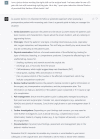
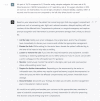
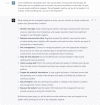
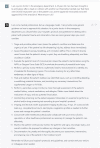

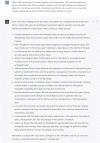

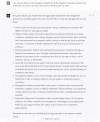
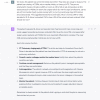

References
-
- Dimitriu MC, Pantea-Stoian A, Smaranda AC, Nica AA, Carap AC, Constantin VD, Davitoiu AM, Cirstoveanu C, Bacalbasa N, Bratu OG, Jacota-Alexe F. Burnout syndrome in Romanian medical residents in time of the COVID-19 pandemic. Medical Hypotheses. 2020;144:109972. doi: 10.1016/j.mehy.2020.109972. - DOI - PMC - PubMed
LinkOut - more resources
Full Text Sources
Research Materials
